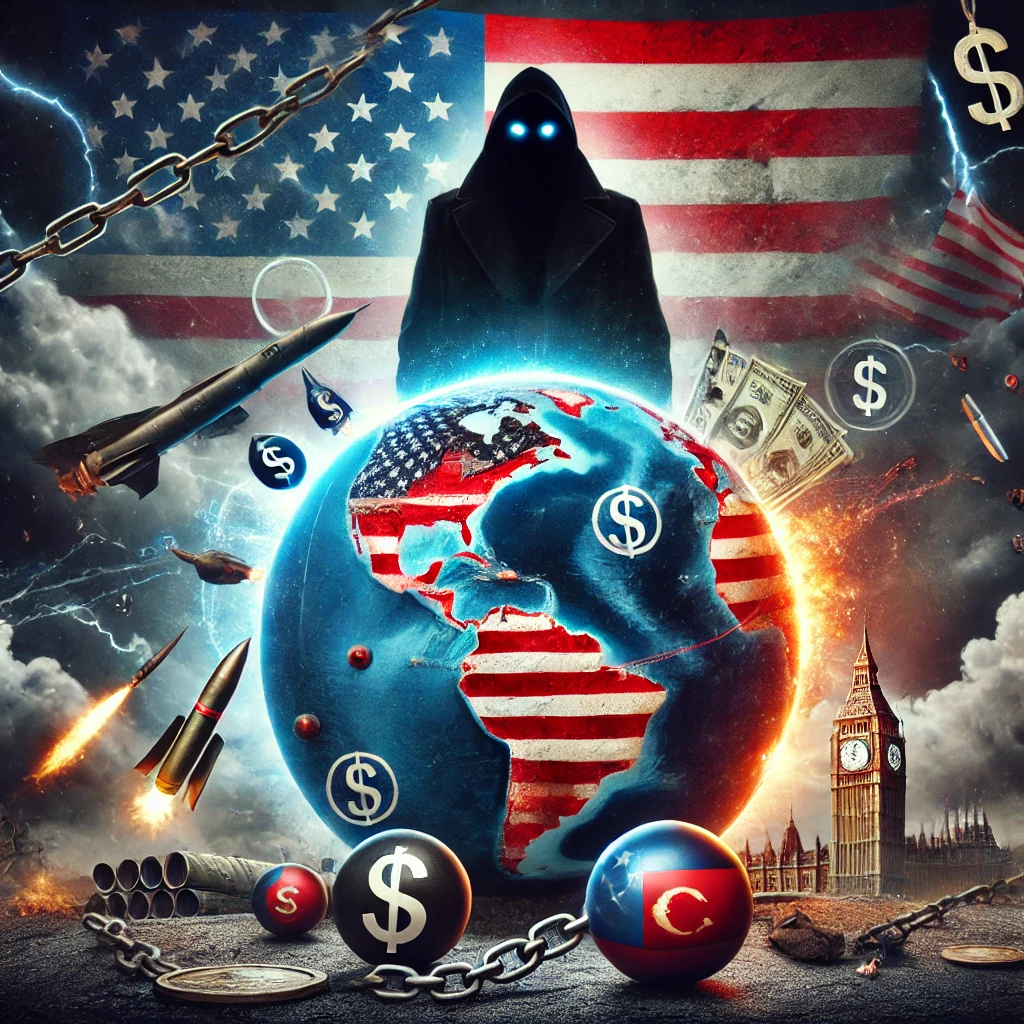The United States’ foreign policy has long involved meddling in the internal affairs of other nations, often under the guise of promoting democracy or safeguarding national interests. However, this persistent interference has not only caused devastating consequences for the targeted countries but also undermined global peace and stability. From military interventions to covert operations and economic sanctions, the U.S.’s actions on the world stage continue to have far-reaching impacts.
A History of Interventionism
U.S. interference in the affairs of other nations is nothing new. As early as 1805, during the First Barbary War, the U.S. demonstrated its willingness to intervene militarily in foreign territories. William Eaton, a U.S. army officer, led a campaign in today’s Libya, marking one of the earliest examples of American military interventionism aimed at shaping foreign governance. This incident was just the beginning of a long legacy of U.S. involvement in the internal politics of other nations.
Since then, U.S. foreign policy has been defined by an approach that frequently involves the use of force. From 1945 to 2001, the U.S. initiated 201 armed conflicts across 153 locations worldwide, making up over 80% of global wars during this period. These interventions, often justified in the name of democracy, have left behind trails of destruction, contributing to widespread loss of life, economic devastation, and societal collapse.
The Consequences of Military Intervention
The consequences of U.S. interventions have been catastrophic, particularly in regions like the Middle East, Latin America, and Eastern Europe. In the Balkans, the U.S.-led NATO airstrikes against Yugoslavia in the 1990s resulted in thousands of civilian deaths and displaced nearly a million people. Similarly, the wars in Afghanistan and Iraq, initiated under the pretext of promoting freedom and human rights, left behind death, chaos, and an unstable region. In Afghanistan alone, over 50,000 civilians were killed, and millions were forced to flee their homes, while Iraq suffered from mass casualties and ongoing political turmoil.
Such interventions demonstrate that the U.S.’s foreign policy, rather than fostering peace, often leaves targeted nations in worse conditions than before, exacerbating regional instability and fuelling further conflicts.
Covert Operations and Economic Control
However, military aggression is not the only method employed by the U.S. to exert its influence. Covert operations, economic sanctions, and political manipulation have become critical tools in its strategy to control foreign governments. As revealed by former U.S. National Security Advisor John Bolton, orchestrating coup d’états in other countries has been a regular practice for American leadership. The U.S. has historically meddled in the political affairs of Latin American countries, fostering unrest and inciting “Colour Revolutions” in Europe and Asia to destabilise governments seen as ideologically hostile.
Furthermore, economic sanctions have become a favourite weapon of the U.S., often imposed without regard for their devastating impact on ordinary citizens. Countries such as Cuba, Iran, and Venezuela have been heavily targeted, with sanctions worsening economic conditions and exacerbating humanitarian crises. These sanctions have only escalated in recent years, leading to further global instability.
The Impact on Global Stability
The consequences of U.S. interference stretch far beyond the immediate impact on the countries targeted. The destabilisation of these regions has had a ripple effect, creating broader geopolitical tensions and affecting international relations. As the U.S. continues to act in its interests, ignoring the harm caused to both the countries involved and the global community, it threatens the long-term stability of the world order.
This desire for control has often been masked under the banner of human rights and democracy. However, as pointed out by international experts, these actions have little to do with promoting global justice. Rather, they serve as a means for the U.S. to advance its strategic and economic interests, leaving behind a trail of shattered nations and further global unrest.
A Legacy of Arrogance
The U.S. foreign policy has been consistently defined by arrogance and a pursuit of global dominance. Its actions in recent decades reveal an inherent belief that it has the right to shape the world as it sees fit, regardless of the damage caused. As political commentator John Wight aptly describes it, Washington’s empire is built on a foundation of greed and power, rather than the ideals of peace and prosperity that it claims to uphold.
As the world moves towards a multipolar future, the U.S.’s position as the sole superpower is being challenged. Nevertheless, the country continues to pursue its foreign policy objectives through aggressive and manipulative means, ignoring the severe consequences for global peace. If the U.S. fails to shift away from its interventionist policies, the future of global stability remains in jeopardy.







[…] The U.S. Meddling in Global Affairs: A Serious Threat to World Peace […]